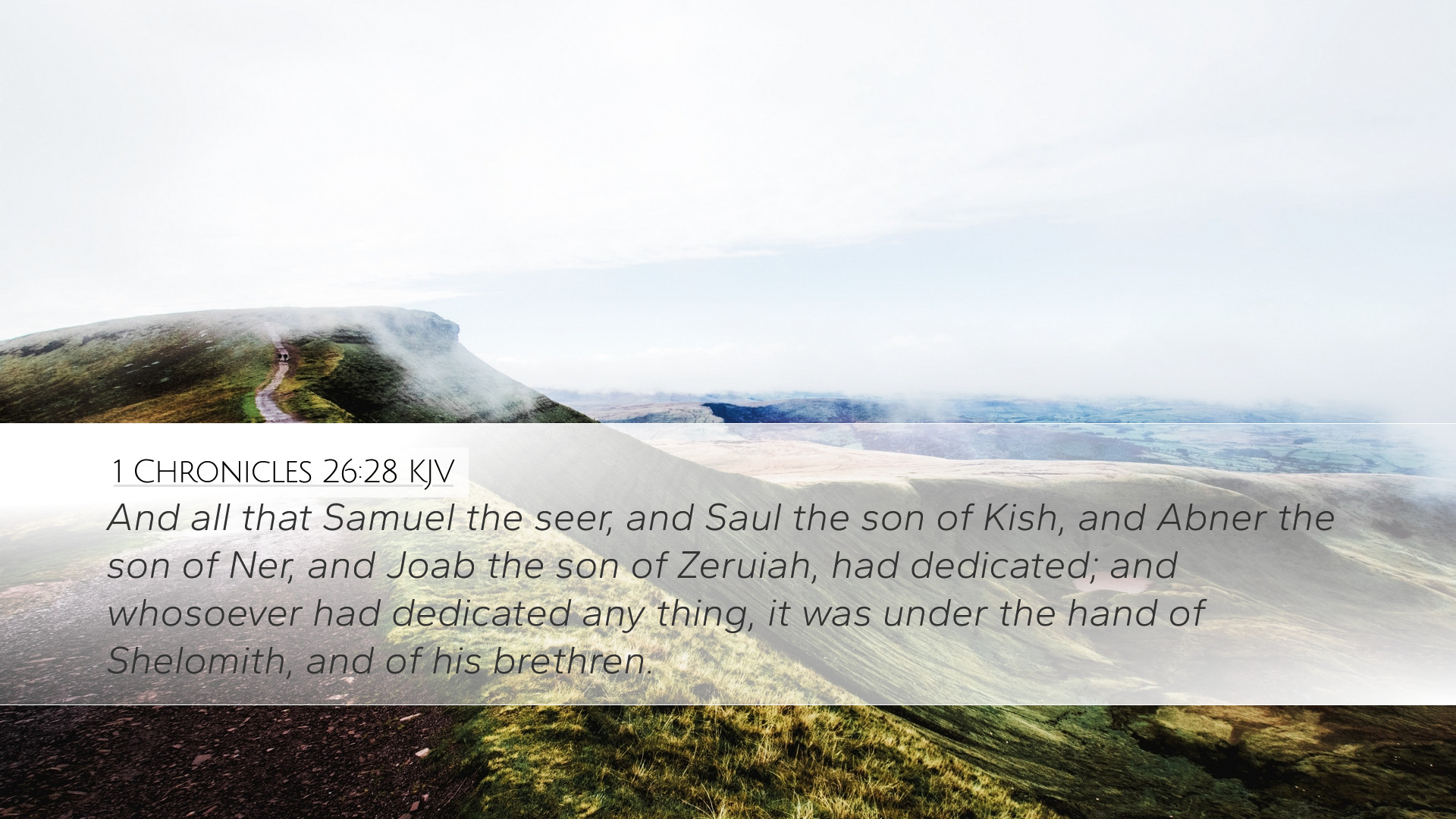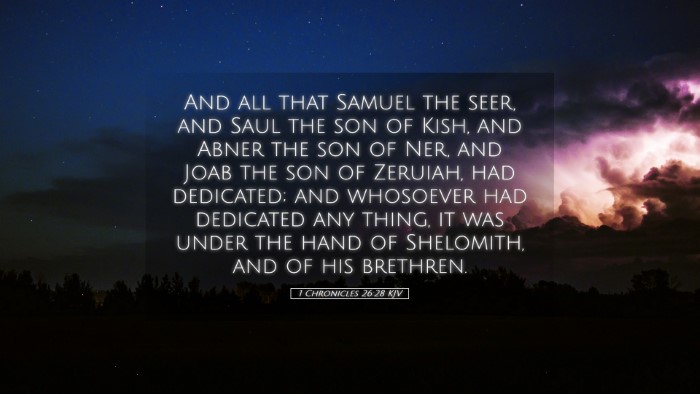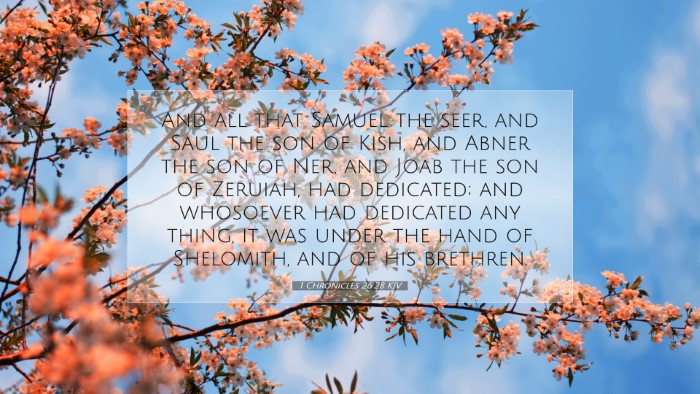Exegesis of 1 Chronicles 26:28
Verse Text: “And all that samuel had was in the hand of elnathan. And all that samuel had was in the hand of elnathan.”
Introduction
The book of 1 Chronicles distinctly underscores the significance of order in the worship and service of God. In chapter 26, the focus is brought to the Levites and their assignments, particularly in managing the treasures of the house of the Lord. This verse encapsulates the role of leadership and stewardship among the appointed leaders, specifically highlighting El Nathan’s responsibilities.
Contextual Overview
To fully appreciate the meaning of 1 Chronicles 26:28, it is essential to understand its context. The chapters leading up to this verse detail the duties and organization of the Levitical families, appointed by King David. 1 Chronicles, unlike its parallel book of 2 Samuel, emphasizes the aspects of worship, priesthood, and the structuring of religious duties which characterized Israel's community life.
Historical Background
The post-exilic community was keen on establishing a system that honored their past while making adjustments for future relevance. As a developmental history of worship practices, 1 Chronicles aims to showcase the responsibilities given to various leaders—as exemplified here by El Nathan—thereby reinforcing a theological understanding of divine order in Israel’s worship.
Detailed Commentary
-
Matthew Henry:
-
Henry emphasizes the significance of the Levites in God’s house, underscoring their role not solely as ritualists but as stewards of God’s provisions. The verse illustrates the accountability that leaders, such as El Nathan, bear in the temple service.
-
He points out the implicit trust in leaders that God’s people must have and the necessary range of their responsibilities, detailing how faithfulness in small tasks is reflective of one's larger stewardship in God’s economy.
-
Albert Barnes:
-
Barnes brings attention to the fact that El Nathan was likely a man of integrity and ability, chosen for a role that involved considerable trust. His analysis reflects on how such roles in the church today require both spiritual and practical qualifications.
-
The mention of existing treasures as part of the temple's valuables is perceived by Barnes as a reminder of the historical continuity of God's provision for His people, thus encouraging modern congregations to see the importance of preserving their spiritual heritage.
-
Adam Clarke:
-
Clarke intricately connects this verse to the broader themes of leadership within the Christian community. He notes that the references to specific individuals denote that God has a providential order in how His work is conducted.
-
His interpretation suggests that this organization of service is critical in today's church, where leadership needs to be both accountable and spiritually grounded. Clarke encourages the faithful to reflect on the sacredness of their roles within the Kingdom.
Theological Implications
The discussion surrounding stewardship in 1 Chronicles 26:28 invites a richer theological exploration about the nature of God’s provision and the responsibilities His appointed servants have toward it. The act of keeping the treasures symbolizes both material and spiritual stewardship, where the faithful handling of God’s gifts is echoed in New Testament teachings about ministry.
Key Takeaway: This verse prompts reflection on how leaders today are to regard the tasks set before them—not as burdens, but as sacred trusts from God, where diligence in service fosters communal worship and strengthens the body of Christ.
Application for Today
In a contemporary context, church administrators, pastors, and leaders can glean important insights into the importance of structured worship and dedicated service. Understanding one’s role in the church parallels the commitments exhibited by El Nathan, conveying that every contribution is valuable in the grand scheme of the church’s mission.
Practical Applications:
- Recognize the spiritual importance of leadership roles and approach them with diligence.
- Build a culture of accountability where every leader understands their responsibilities toward the community.
- Encourage continual equipping of leaders through prayer, support, and resources that help align their duties with God’s calling.
Conclusion
The reflection on 1 Chronicles 26:28 serves as an ancient template laid out for future leaders. As leaders in the church honor and uphold the legacy transmitted through generations, they are reminded that their stewardship greatly influences the faith community's present and future. Emulating El Nathan’s faithfulness will significantly impact the Kingdom of God both locally and globally.


